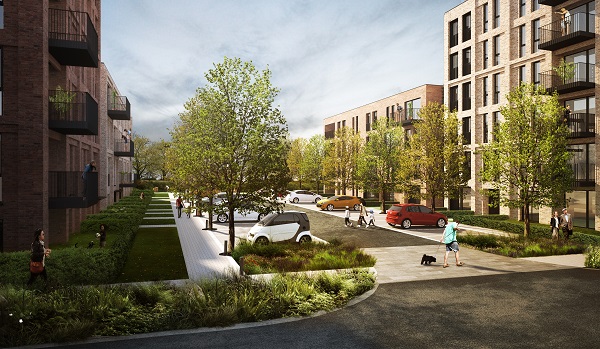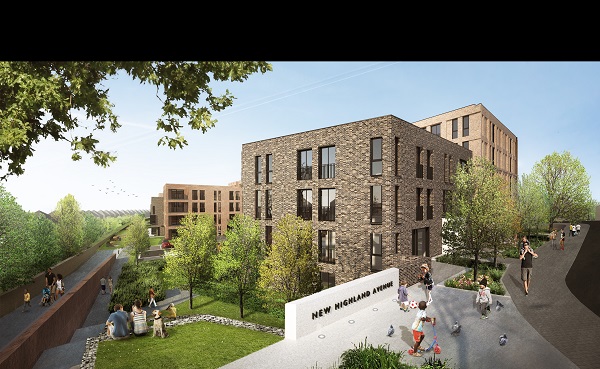Ealing First London Council To Ballot Residents Over Regeneration
90% from High Lane in Hanwell voted to press ahead with rebuild plans

|
Residents of an estate in Hanwell have backed council plans to rebuild their neighbourhood.
It's the first time a mandatory ballot has been used by a London council to determine public support for a regeneration scheme.
90% of eligible residents from the High Lane estate voted Yes in the ballot, with 57% of residents taking part in the vote.
The ballot, which took place over four weeks in November and December, was the first that the council has run since it committed in October to consulting residents before the regeneration of their estates goes ahead. They say this aims to ensure that local people have the final say on the future of their neighbourhoods.
The decision, made at cabinet on 16 October, reflects the implementation of a new initiative from the Greater London Authority (GLA), which makes grant funding for council home building programmes dependent on approval from residents.
The new estate at High Lane will include a mix of tenures, including social rent, shared equity and private sales. The entire neighbourhood will be rebuilt, creating a new shop, community centre and full sized multi-use games area for the community.
All current tenants are guaranteed to get a modern, safe and comfortable home on the rebuilt estate if they want one, while leaseholders can either opt to leave the estate with a market value payment for their home, or stay with a share of the equity in one of the new homes.

Councillor Peter Mason is Ealing Council’s lead member for housing, planning and transformation. He said: “We have embraced ballots on our council estates as the best way of putting residents at the heart of the decision-making process. By balloting residents, we have empowered them to hold us accountable in our efforts to achieve the best possible future for their neighbourhood.
“The GLA’s decision to enshrine the need for ballots on regenerated estates is an approach that we’ve enthusiastically adopted, and all of our future estate regeneration projects will be subject to approval by residents before work starts. With the result of this ballot, we have set a standard that we hope the rest of London will follow.
“We were always confident of getting a positive result at High Lane – it reflects the great work we’ve done there over the past four years to ensure that residents’ views are prioritised. The plans will offer the residents the high-quality homes they deserve, with no-one out of pocket because of the regeneration. Our well-established, award-winning estate regeneration programme has given us a wealth of experience, which will be vital in making a real success of the renewed estate.”
The Greater London Authority (GLA)’s ‘Better Homes for Local People - Good Practice Guide to Estate Regeneration’ compels London’s local authorities to consult tenants and leaseholders on estates earmarked for demolition.
James Murray, Deputy Mayor for Housing and Residential Development said: “The Mayor wants Londoners who live on estates to have a real say when changes are planned for where they live, which is why he has put ballots at the heart of his approach to estate regeneration.
“We are very pleased to see Ealing become the first council to hold a ballot under the Mayor’s new rules, which for the first time have made City Hall funding conditional on a positive vote by residents.
“With an overwhelming majority in favour of the plans, we look forward to working with Ealing Council to build better homes for local people on the High Lane estate, and more of the social housing that Londoners so desperately need.”
December 17 2018